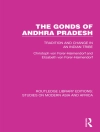Though the Alps may appear to be a peaceful place, the famed mountains once provided the backdrop for a political, environmental, and cultural battle as Germany and Austria struggled to modernize. Tait Keller examines the mountains’ threefold role in transforming the two countries, as people sought respite in the mountains, transformed and shaped them according to their needs, and over time began to view them as national symbols and icons of individualism. In the mid-nineteenth century, the Alps were regarded as a place of solace from industrial development and the stresses of urban life. Soon, however, mountaineers, or the so-called apostles of the Alps, began carving the crags to suit their whims, altering the natural landscape with trails and lodges, and seeking to modernize and nationalize the high frontier. Disagreements over the meaning of modernization opened the mountains to competing agendas and hostile ambitions. Keller examines the ways in which these opposing approaches corresponded to the political battles, social conflicts, culture wars, and environmental crusades that shaped modern Germany and Austria, placing the Alpine borderlands at the heart of the German question of nationhood.
Tait Keller
Apostles of the Alps [PDF ebook]
Mountaineering and Nation Building in Germany and Austria, 1860-1939
Apostles of the Alps [PDF ebook]
Mountaineering and Nation Building in Germany and Austria, 1860-1939
Mua cuốn sách điện tử này và nhận thêm 1 cuốn MIỄN PHÍ!
Ngôn ngữ Anh ● định dạng PDF ● Trang 304 ● ISBN 9798890845412 ● Nhà xuất bản The University of North Carolina Press ● Được phát hành 2016 ● Có thể tải xuống 3 lần ● Tiền tệ EUR ● TÔI 9200321 ● Sao chép bảo vệ Adobe DRM
Yêu cầu trình đọc ebook có khả năng DRM












